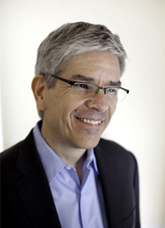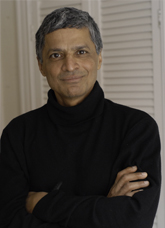PAUL ROMER, Senior Fellow, Stanford Institute for Economic Policy Research

World-class economist — specialist on the theory of growth and innovation
Mr. Paul Romer, the primary developer of the economic theory known as “New Growth Theory” which provides a fresh foundation for how businesses and governments think about wealth creation, is Henry Kaufman Visiting Professor in NYU Stern School of Business and Senior Fellow of Stanford Institute for Economic Policy Research.
He is also the president and founder of Charter Cities, a research non-profit focused on the interplay of rules, urbanization and development. For his work on Charter Cities, Paul was chosen for Foreign Policy’s Top 100 Global Thinkers of 2010.
His research addresses one of the oldest questions in economics: “What sustains economic growth in a physical world characterized by diminishing returns and scarcity?” Answer to that question stated as “the discovery of new ideas in the form of both new technologies and new rules”. New Growth Theory explains the dynamics of innovation-driven growth and how rules can foster and enhance the impact of greater innovation.
Paul Romer, is also an expert on “how rules, both formal laws and informal social norms, affect innovation and growth” where he studies on the relations between the rules of the developing and advanced economies and technology. He is also the founder of Aplia, Inc. in 2000, which develops new learning technologies on higher education.
Mr. Romer was honored with the Distinguished Teaching Award during his previous position as STANCO 25 Professor of Economics in Stanford University and for his work in New Growth Theory, he was also awarded the Horst Claus Recktenwald Prize in Economics for outstanding achievement and contributions to the field of economics and to the improvement of society as a whole.
AMAR BHID�, Thomas Schmidheiny Professor, The Fletcher School of Law and Diplomacy, Tufts University

Leading authority on the role innovation and enterpreneurship play in creating prosperity in a globalized world
Amar Bhidé, is a leading authority on innovation, enterpreneurship and business strategy. He is the author of several publications in the areas of business and leadership challanges of starting and growing new businesses around new ideas. In his studies and books, he shares invaluable advice on how to start a successful new business or grow a new enterprise inside an existing organization around valuable new ideas.
His studies for understanding entrepreneurship integrate years of intensive research and modern theories of business and economics. Examining hundreds of successful ventures, Bhidé provides new and penetrating insights for a typical business model.
Bhidé’s book “The Origin and Evaluation of New Business” is referred as a deeply researced landmark study that offers significant help to enterpreneurs. In this book, Bhidé touches upon the points such as “secrets of success in enterpreneurship and role of the venture capitals”.
Unique and counterintuitive in its perspective, “The Venturesome Economy: How Innovation Sustains Prosperity in a More Connected World”, focuses our attention on venturesome consumers and the enterpreneurs and marketers who serve their appetite for the new –the real key to prosperity in a global economy. The Economist named The Venturesome Economy, one of the best books of 2008.
His new book “A Call for Judgement: Sensible Finance for a Dynamic Economy”, explains in a clear way how bad theories and miss-regulation have caused this dangerous divergence between the real economy and finance.
He has written numerous articles on “finance” and “entrepreneurship strategies” in the Wall Street Journal, The New York Times, BusinessWeek, Forbes, the Financial Times and The LA Times.
Previously, he was the Lawrance D. Glauberger Professor of Business at Columbia University. He is a member of the Center on Capitalism and Society and founder and editor of its journal, Capitalism and Society.
Professor Bhidé has served on the faculty of Harvard Business School and the University of Chicago’s Graduate School of Business. He is a member of the Council on Foreign Relations and a fellow of the Royal Society of Arts. Mr.Bhidé served on the staff of the Brady Commission, which investigated the 1987 stock market crash.



